-

Nurse Shark at Night
A nurse shark, which is usually inactive and hiding during the day, is seen on a night dive hunting out on the reef. -
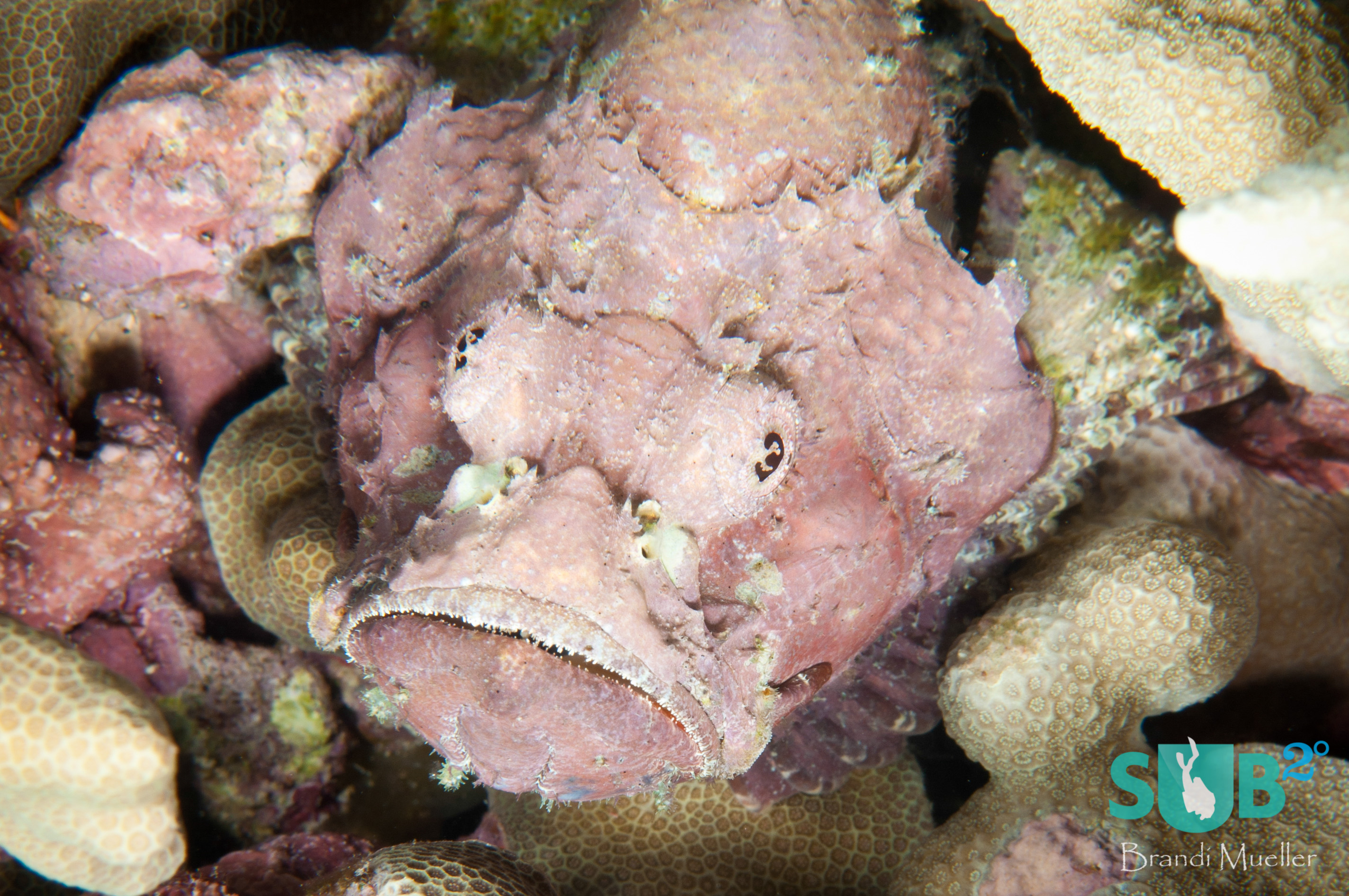
Stonefish
Stonefish always blend in with their surroundings, but at night sometimes they come out of their hiding places, waiting for a midnight snack. -
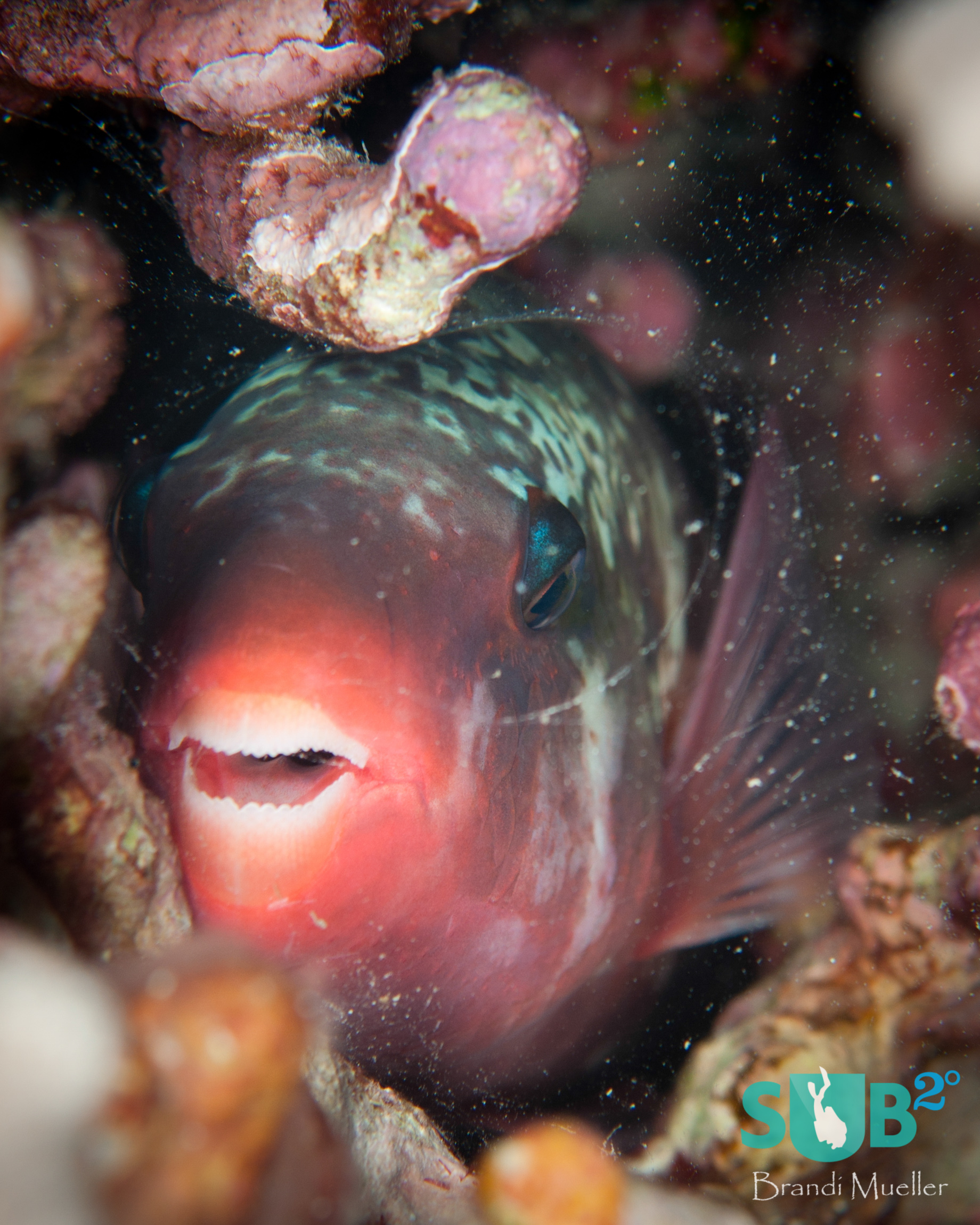
Sleeping Parrotfish
Parrotfish protect themselves at night by making a cocoon or bubble of mucus around them. If a predator tries to attack them, the bubble pops and wakes them up so they can escape. -
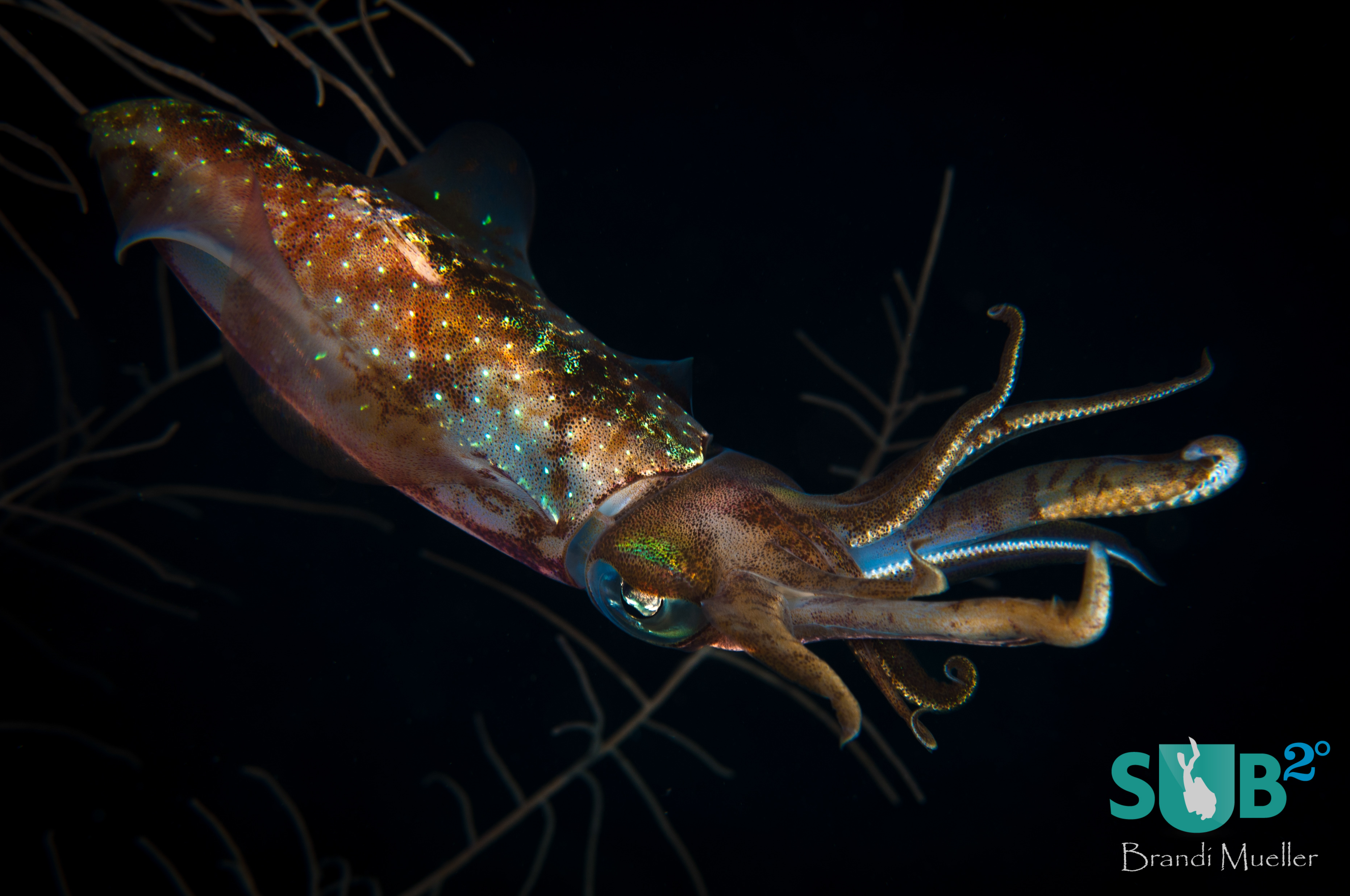
Squid
A colorful squid feeding at night. -
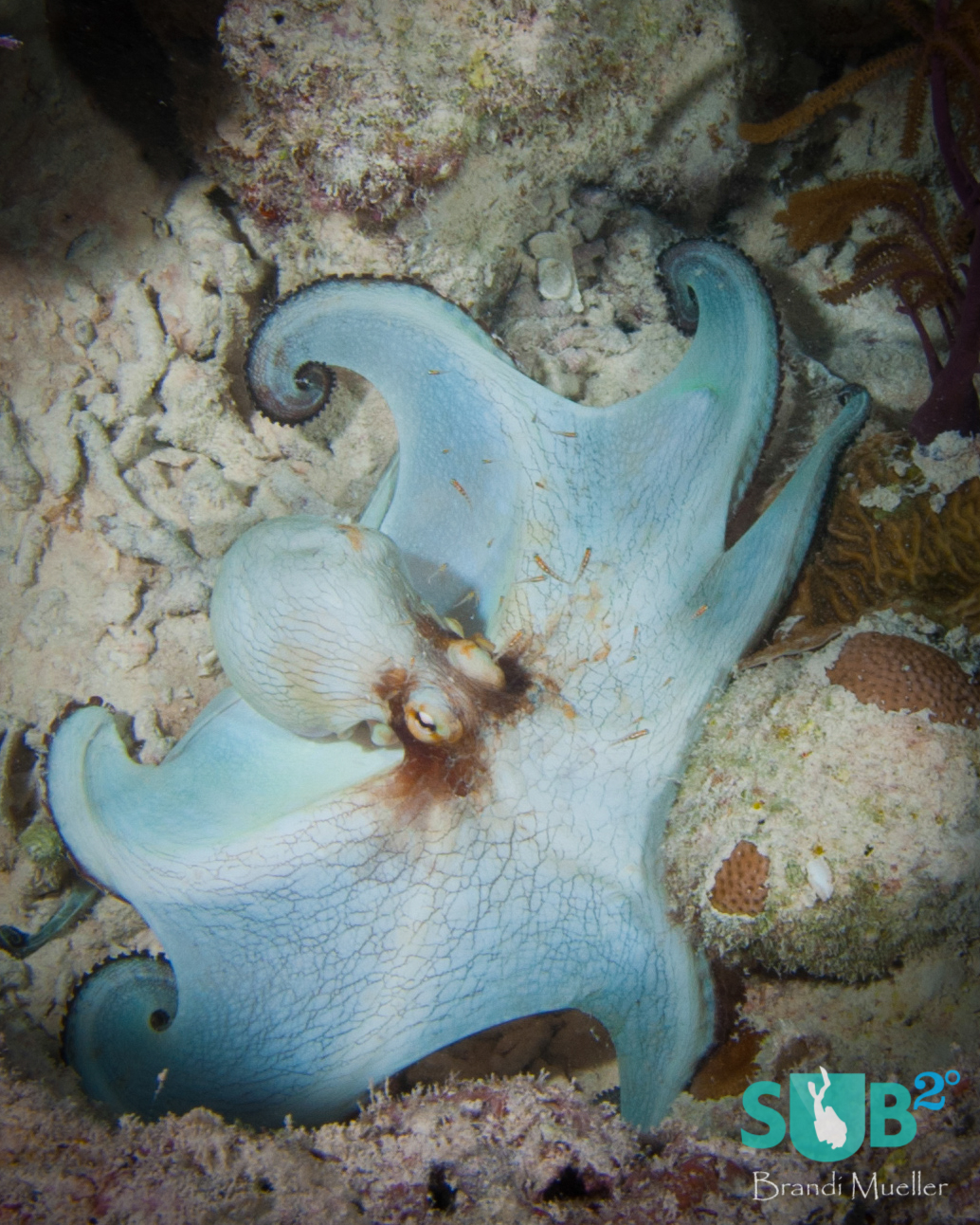
Octopus at Night
At night octopus can be seen hunting on the reef.
Night Diving
Have you ever wondered what happens underwater at night? The life on the reef changes as the sun sets, and many of the fish seen during the day disappear and a new set of creatures come out. Some species are nocturnal and can only be seen at night, and some animals you might see during the day display different behaviors such as hunting and feeding.
Night diving is a great way to take a dive site you know and see it in a completely different way. Using a dive light will force you to slow down and carefully observe small sections of the reef and all the critters within. You never know what you might find after dark.
Night Dive Critters
Night diving experiences will vary depending on where you're diving but small shrimps and crabs are almost a guarantee, as they emerge from their daytime hideouts and can be seen walking across the sand or out on top of coral.
Octopus often feed after dark and they seem to glide over the coral until they find a good spot, where they seem to balloon over an area and capture any food underneath them. Schools of squid can be seen hunting, usually as a sliver flash reflecting in the glow from a dive light.
Parrotfish are an interesting night dive find because they secrete a mucous bubble around themselves before going to sleep (think of it like a parrotfish sleeping bag). This protects them from predators because the bubble will break and wake them up if something touches it, alerting them to escape.
During the day, eels are usually coiled back into the coral and we only see their heads, but at night they come out to hunt and divers can see their true length, sometimes several feet long.
Stonefish and scorpionfish blend in with their surroundings any time of the day, but sometimes at night they sit out in the open, in hopes of an unexpected meal swimming by.
Some fish, such as trevallies, have adapted to divers’ lights and will use them to help them hunt. Several trevallies might be seen swimming right next to divers and when a fish is lit up, they will quickly swim to it and eat it.
Another unique night diving experience is seeing bioluminescence, or phosphorescent plankton. When tiny plankton are disturbed they emit a small spec of light, looking almost like glitter underwater. Comfortable night divers can turn off their flashlights and see the bioluminescence around them with every moment through the water.
Recommendations for Night Diving
It might seem a bit intimidating at first, jumping into the water in the dark, but fret not. With a few extra safety precautions, divers can have the unique opportunity to see the ocean in a whole new way.
- Dive a site during the day before attempting it at night. Even a familiar site can be disorientating in the dark, so be sure to visit it first in the light.
- Don’t go far. Night dives are a great time to slow down and really check out an area. Because your vision is limited to the light of your dive light, you can find lots of critters in a small area. There’s usually no need to swim a long way from the boat or shore.
- Have at least two lights, a primary and smaller secondary back-up dive light. Make sure both are working before going in the water and batteries are new or recharged.
- Marker lights – use a glow stick or some other light to attach to the tank of each diver. Also mark ascent and descent lines. A strobe light can be useful for marking the boat or shore entrance to help divers return to where they started.
- Be aware of where you are pointing your light. Accidently shining your light in your buddy’s eyes can cause loss of night vision. Also be aware of the animal you are lighting up, as bright lights can damage their eyes.
- Night diving communication – shine your flashlight on your hand, so your buddy can see your hand signals. To get your buddy's attention at night, shine your light in front of theirs back and forth (never at their eyes).
- Avoid overhead environments at night such as caves or going inside wrecks because the lack of light can make it difficult to find exit points if you become disorientated.
- Know what creatures to avoid at night. Watch out for things like urchins that you might not see as well in the dark and be aware of your surroundings to avoid running into coral, etc.
- Only night dive in good conditions. Be aware of currents, tide, visibility, and weather. Do not night dive if conditions aren’t favorable.
Beginner night divers might feel more comfortable completing an advanced course that includes night diving or a night diver specialty, both of which are available from most scuba training agencies.
Diving with a knowledgeable dive guide can help reduce anxiety because he/she will be familiar with the dive site and the animals that can be found there.
Night diving can be done as a shore dive or from a boat, and dusk or dawn dives can be incredible to watch the marine life changes from light to dark (or dark to light).
The unique opportunities of night diving are endless. You never know what you’ll see after the sunsets. Happy night diving!
Further Reading
All Articles By Brandi Mueller
Ocean Threats Series - Overfishing – Part I
Featured Posts
-
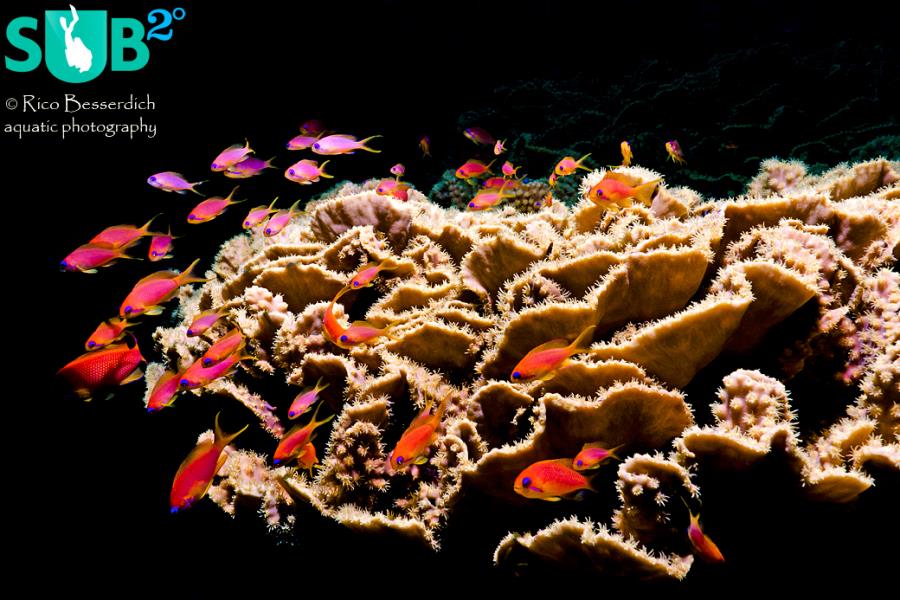
Please "Like" My Photo!
Once you've made some cool underwater shots, you would love to have more people notice your photos, for example by sharing them on Facebook. A path full of potential but lots of nasty obstacles on the way. Let's have a look!
-
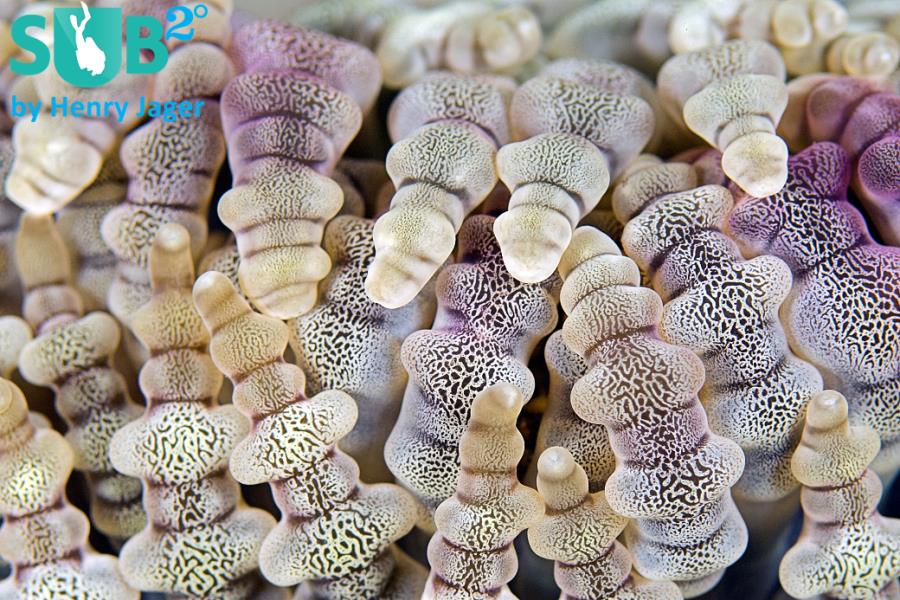
Reef-Art: Looking at the Reef...
Reef-Art shows fascinating insights to an underwater world, 99% of the divers never see. Reef-Art is the "Fine Art" of macro photography. It's a passion! The passion to bring your audience something they don't expect, they h...
-
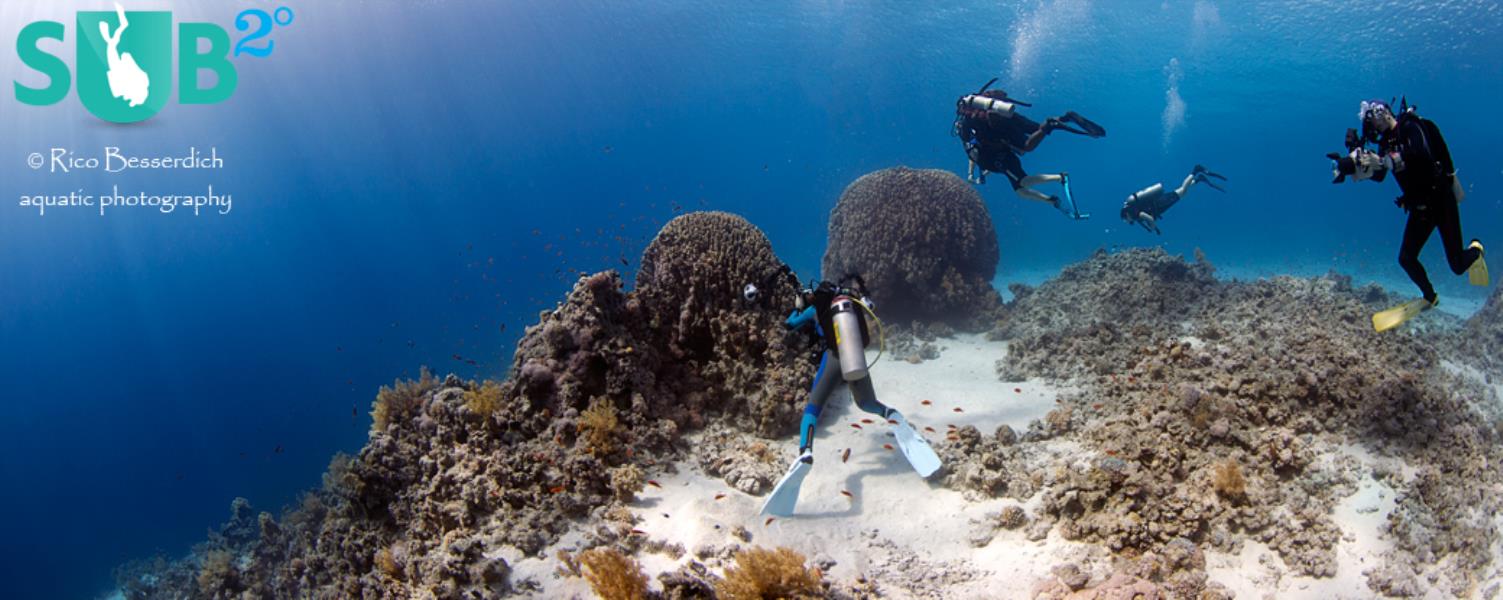
Underwater Photography: Shoot...
Are you ready for huge perspectives in your underwater photographs? Wide-angles are fine but do you want it even wider? Time to check out underwater panorama photography!
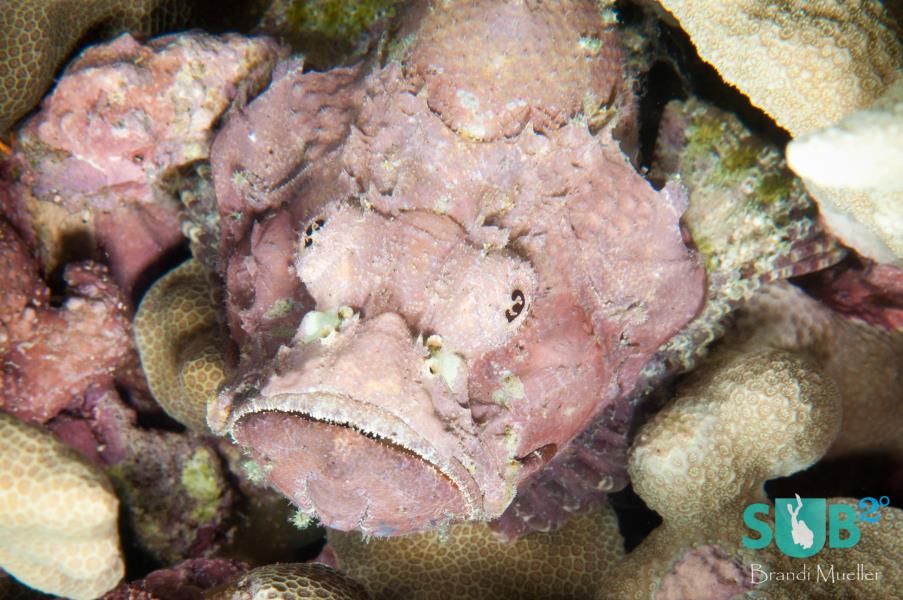
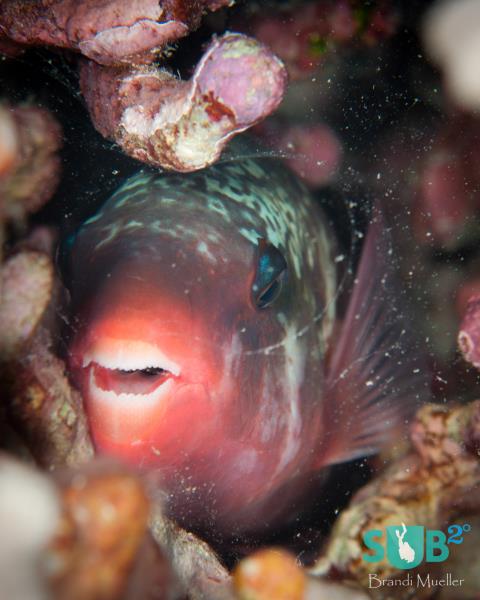
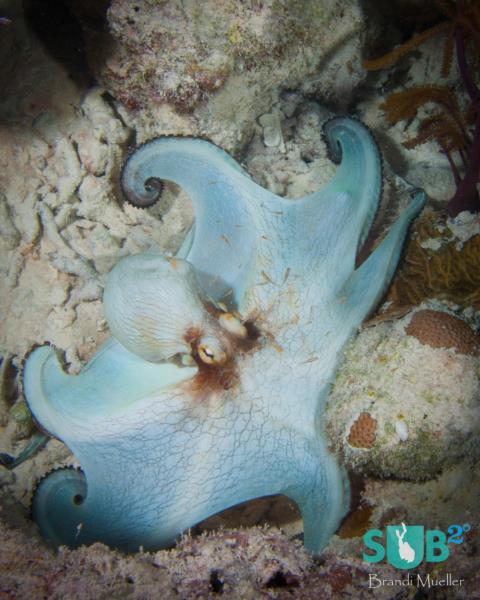
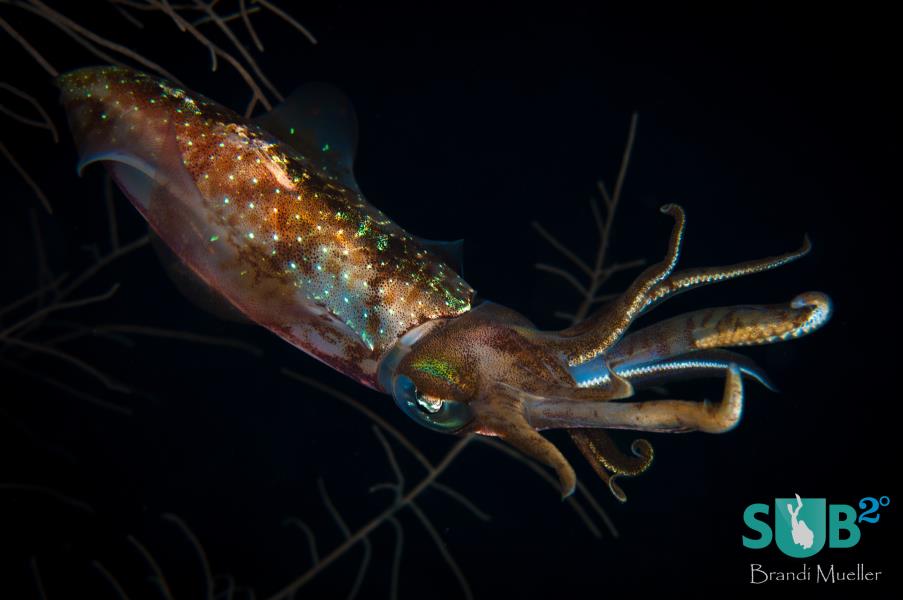


Load more comments